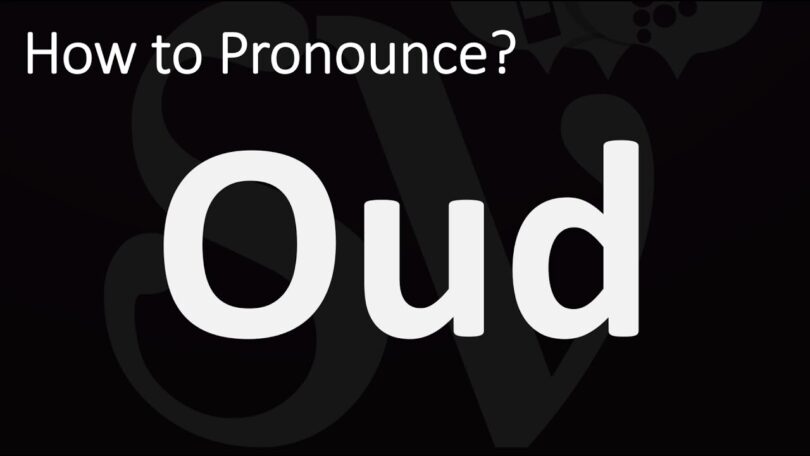Oud is pronounced as “oohd” or “owd.” Oud is a musical instrument commonly used in Arabic and Middle Eastern music.
Its unique and compelling sound has captivated musicians and audiences alike for centuries. The word “oud” is derived from the Arabic word “al-oud,” meaning “the wood. ” The oud is made from a combination of different types of wood, including spruce, ebony, and rosewood.
Its pear-shaped body and long neck give it a distinctive appearance. The oud is played by plucking its strings with a plectrum or fingertips, producing a deep and resonant sound. In recent years, the oud has gained popularity worldwide and has been incorporated into various genres of music, not just traditional Middle Eastern music. Musicians and composers continue to explore the rich and melodious possibilities of this ancient instrument.
The Origins And Significance Of Oud
Oud, a popular musical instrument, has a rich historical background that adds to its cultural significance across various regions. Its origins can be traced back to ancient times, with recorded evidence of its presence in the ancient civilizations of Mesopotamia and Egypt.
Oud holds immense importance in Middle Eastern and North African cultures, where it has been an integral part of traditional music for centuries. In these regions, oud is deeply embedded in social gatherings and religious ceremonies, playing a pivotal role in expressing emotions and storytelling.
The instrument has also gained popularity globally, attracting musicians and enthusiasts from different cultural backgrounds. Its distinct sound and versatility have made it a key instrument in various genres, including classical, folk, and contemporary music. The historical and cultural significance of oud continues to resonate today, bridging cultures and connecting people through the power of music.
Variations In Pronunciation Of Oud
Oud is a musical instrument commonly found in Middle Eastern and North African cultures. The pronunciation of oud can vary depending on the geographical location. In some regions, it is pronounced as “ood,” while in others, it is pronounced as “oohd.
” These variations in pronunciation can be attributed to cultural influences and linguistic differences. The way people pronounce oud is often influenced by their native language or dialect. For example, Arabic-speaking countries may pronounce it differently from Persian-speaking regions. Additionally, within a specific country or region, there might be variations in pronunciation due to local accents or dialects.
Understanding these geographical and cultural influences can help in appreciating the diversity of pronunciations for oud.
Common Misconceptions About Pronouncing Oud
There are several misconceptions surrounding the correct pronunciation of oud. Many people believe it should be pronounced as “ood” or “owd,” but these are not accurate. In fact, the correct pronunciation is “oodh. ” This misconception may arise from the fact that oud is a word of Arabic origin, where it is pronounced with a distinct throaty sound.
Another common misinterpretation is that oud should rhyme with “loud” or “crowd. ” However, the correct pronunciation does not have the same vowel sound as these words. It is important to debunk these myths and clarify the proper pronunciation of oud to ensure accurate communication about this ancient musical instrument.
Tips For Pronouncing Oud Correctly
Correct pronunciation of oud, a musical instrument, is crucial for a fulfilling musical experience. Improving your oud pronunciation skills involves practical steps. First, listen attentively to experienced oud players and pay attention to the sounds they produce. Mimicking their pronunciation will enhance your own.
Additionally, practice regularly by playing the oud yourself, focusing on pronouncing each note accurately. Use online resources such as audio recordings or tutorials to guide you. Seek feedback from knowledgeable musicians who can point out any errors in your pronunciation.
Dedicate time to perfecting your technique, as consistent practice is key. By understanding the importance of correct pronunciation and following these steps, you will enhance your oud playing skills and create beautiful music.
Familiarizing Yourself With Oud Pronunciation Techniques
Familiarizing yourself with oud pronunciation techniques can greatly enhance clarity. To develop proper pronunciation, there are notable resources available, including online tutorials and instructional videos. Listening to native speakers and imitating their intonation and emphasis can be helpful. Practicing pronunciation with a native speaker or language coach is also recommended.
Breaking down the word into sounds and syllables and practicing each one individually can increase accuracy. Additionally, paying attention to the position of the tongue and mouth when pronouncing certain letters or sounds can make a difference. Consistency and regular practice are key to mastering oud pronunciation.
By following these techniques and utilizing available resources, you can confidently pronounce oud accurately and clearly.
Appreciating The Diversity In Oud Pronunciation
Exploring the rich world of oud pronunciation allows us to appreciate the beauty in its diversity. Different dialects and accents add unique flavors to the way oud is pronounced. From the softness of a French accent to the melodic tones of Arabic dialects, each pronunciation tells a story.
Embracing these nuances creates a deeper connection with this exquisite instrument. Whether it’s pronounced as “ood,” “owd,” or “ahd,” these variations reflect the cultural tapestry that surrounds oud. Let’s celebrate the multitude of voices that unite in harmonizing the rich essence of oud, a testament to the power of music to bridge divides and bring us closer together.
Importance Of Pronouncing Oud Accurately
Pronouncing oud accurately holds cultural relevance and ensures respect. It’s important to understand the significance behind pronouncing oud correctly, as it encompasses more than just the musical aspect. Oud, a stringed instrument commonly used in Middle Eastern music, is deeply rooted in history and tradition.
Accurate pronunciation not only demonstrates knowledge and appreciation for the instrument, but also acknowledges the cultural identity it represents. When we pronounce oud accurately, we not only enhance our understanding and enjoyment of oud music, but we also participate in preserving and honoring a rich cultural heritage.

Credit: oliveandoud.blogspot.com
Recognizing Your Progress In Oud Pronunciation
Recognizing your progress in pronouncing oud can be a rewarding experience. It’s important to evaluate your own improvement, recognizing the milestones you’ve achieved in perfecting your oud pronunciation. As you continue to practice and refine your skills, take note of the small victories along the way.
Whether it’s pronouncing a difficult word or mastering a specific technique, celebrate these accomplishments. Each step forward is a testament to your dedication and determination. Embrace the learning process, and acknowledge the effort you’ve put into honing your pronunciation skills.
By taking the time to evaluate your progress, you can fuel your motivation and continue on your journey of becoming proficient in oud pronunciation. So keep practicing, keep improving, and celebrate the milestones along the way.
The Joy Of Pronouncing Oud: Tips From Experts
Finding the right pronunciation for “oud” can be a delightful journey. Experts suggest various techniques and strategies to develop accurate oud pronunciation. Through personal experiences and insights shared by oud enthusiasts, you can explore different approaches and hone your skills.
Immersing yourself in the world of oud and actively engaging with the instrument can greatly enhance your ability to pronounce it correctly. Experiment with different techniques, listen to renowned oud players, and practice regularly to develop your own unique way of pronouncing oud.
With dedication and persistence, you can achieve a level of mastery that will not only enrich your own playing, but also enhance the overall musical experience for both yourself and your audience. So, embrace the joy of pronouncing oud and embark on this rewarding linguistic adventure.
Oud Pronunciation Challenges: Overcoming Obstacles
Oud pronunciation can be challenging due to its unique sounds. Many people struggle with this musical term, resulting in mispronunciations. Overcoming these difficulties requires a few strategies. Firstly, listen to native speakers or experts who can provide accurate pronunciations. Mimicking their intonation and rhythm will help improve your own pronunciation.
Another approach is to break down the word into syllables and practice each one separately. This allows you to focus on the intricate sounds of each syllable and gradually put them together. Additionally, utilizing language learning tools, such as audio recordings or pronunciation guides, can provide visual and auditory assistance.
Practicing regularly and being patient with yourself is key to surpassing the obstacles of oud pronunciation. With determination and perseverance, you can master the proper pronunciation of this captivating musical term.
Exploring Regional Accents In Oud Pronunciation
Exploring regional accents and their impact on oud pronunciation reveals a fascinating connection between accent and playing style. The diverse ways in which people pronounce oud across various regions play a significant role in shaping the music produced. Analyzing this connection sheds light on the subtle nuances and variations that have emerged over time.
While some accents may lend a soft and melodic tone to the oud, others may bring forth a sharper, more vibrant sound. The cultural influences and linguistic diversity within different locales result in an array of playing styles that contribute to the unique character of the oud.
Understanding and appreciating these regional variations in pronunciation add depth and richness to the instrument’s heritage and evolution.
Concluding Thoughts On Oud Pronunciation
Pronouncing oud correctly holds a significant role in appreciating and understanding this ancient instrument. It enriches the overall musical experience and allows for a deeper connection with the instrument’s heritage. By mastering the pronunciation of oud, we pay respect to its cultural roots and traditions.
Therefore, let us not get discouraged by initial challenges but stay motivated to perfect our pronunciation skills. Through continuous practice and dedication, we can gradually improve and achieve fluency. As we embark on this journey, let us embrace the beauty of the oud and strive to pronounce it with authenticity and reverence.
This journey of refining our oud pronunciation will amplify our enjoyment of this exquisite instrument while honoring its historical and cultural significance.
Frequently Asked Questions Of How Do You Pronounce Oud
How Do You Pronounce Oud In Arabic?
The correct pronunciation of “oud” in Arabic is “ood. “
What Is A Oud Fragrance?
Oud fragrance is a popular scent known for its woody and musky notes. It is highly valued in perfumery and has a rich and distinctive aroma.
What Is The Meaning Of The Word Oud?
Oud is a fragrant and resinous wood commonly used in the production of perfume and incense.
What Is The Difference Between Perfume And Oud?
Perfume and oud are different. Perfume is a fragrant liquid, while oud is a type of perfume derived from the agarwood tree.
Conclusion
Overall, the pronunciation of “oud” can vary depending on cultural and regional factors. With its rich history and widespread popularity, this traditional Middle Eastern instrument has found its way into the hearts of music lovers worldwide. While some pronounce it as “ood,” others may pronounce it as “ooz” or “uud.
” Regardless of the pronunciation, what matters most is the appreciation and enjoyment of the music created with this enchanting instrument. As global connections continue to bring diverse cultures together, the pronunciation of “oud” becomes a fascinating topic of discussion.
Whether you’re a musician, a music enthusiast, or simply curious about different cultures, exploring how to pronounce “oud” opens up a world of fascinating musical traditions and sounds. So, embrace the variations in pronunciation and let the melodies of the oud resonate within your soul.
By understanding and respecting the different pronunciations of “oud,” we can celebrate the diversity of musical expression across cultural boundaries. So, whether you say “ood,” “ooz,” or “uud,” let the enchanting sound of the oud transport you to far-off lands and immerse yourself in the captivating world of this timeless instrument.








